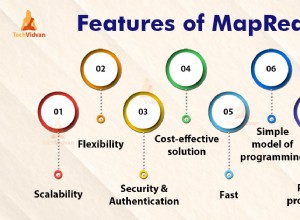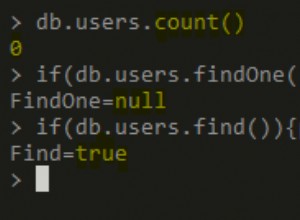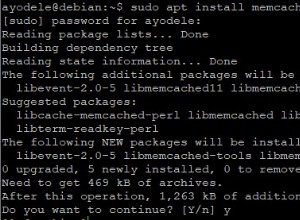So gehen wir das an (das Endergebnis ist super glatt zwischen Lombok, Jackson und MongoDB):
Anbieter:
public class JacksonCodecProvider implements CodecProvider {
private final ObjectMapper objectMapper;
public JacksonCodecProvider(final ObjectMapper bsonObjectMapper) {
this.objectMapper = bsonObjectMapper;
}
@Override
public <T> Codec<T> get(final Class<T> type, final CodecRegistry registry) {
return new JacksonCodec<>(objectMapper, registry, type);
}
}
Und der Codec selbst:
class JacksonCodec<T> implements Codec<T> {
private final ObjectMapper objectMapper;
private final Codec<RawBsonDocument> rawBsonDocumentCodec;
private final Class<T> type;
public JacksonCodec(ObjectMapper objectMapper,
CodecRegistry codecRegistry,
Class<T> type) {
this.objectMapper = objectMapper;
this.rawBsonDocumentCodec = codecRegistry.get(RawBsonDocument.class);
this.type = type;
}
@Override
public T decode(BsonReader reader, DecoderContext decoderContext) {
try {
RawBsonDocument document = rawBsonDocumentCodec.decode(reader, decoderContext);
String json = document.toJson();
return objectMapper.readValue(json, type);
} catch (IOException e) {
throw new UncheckedIOException(e);
}
}
@Override
public void encode(BsonWriter writer, Object value, EncoderContext encoderContext) {
try {
String json = objectMapper.writeValueAsString(value);
rawBsonDocumentCodec.encode(writer, RawBsonDocument.parse(json), encoderContext);
} catch (IOException e) {
throw new UncheckedIOException(e);
}
}
@Override
public Class<T> getEncoderClass() {
return this.type;
}
}
In Kombination mit Lombok und den neuesten Jackson-Anmerkungen ermöglicht es uns, solche Dinge zu tun (sieht kaum wie Java-Code aus, oder?):
@JsonIgnoreProperties(ignoreUnknown=true)
@JsonDeserialize(builder = Account.AccountBuilder.class)
@Builder(toBuilder=true)
@Value
public class Account {
@JsonProperty private String _id;
@JsonProperty private long _version;
@JsonProperty private String organizationName;
@JsonPOJOBuilder(withPrefix = "")
public static final class AccountBuilder {
}
}
Dann:
Account account = collection.find(eq("_id", id)).first();
System.out.println(account.getOrganizationName());




